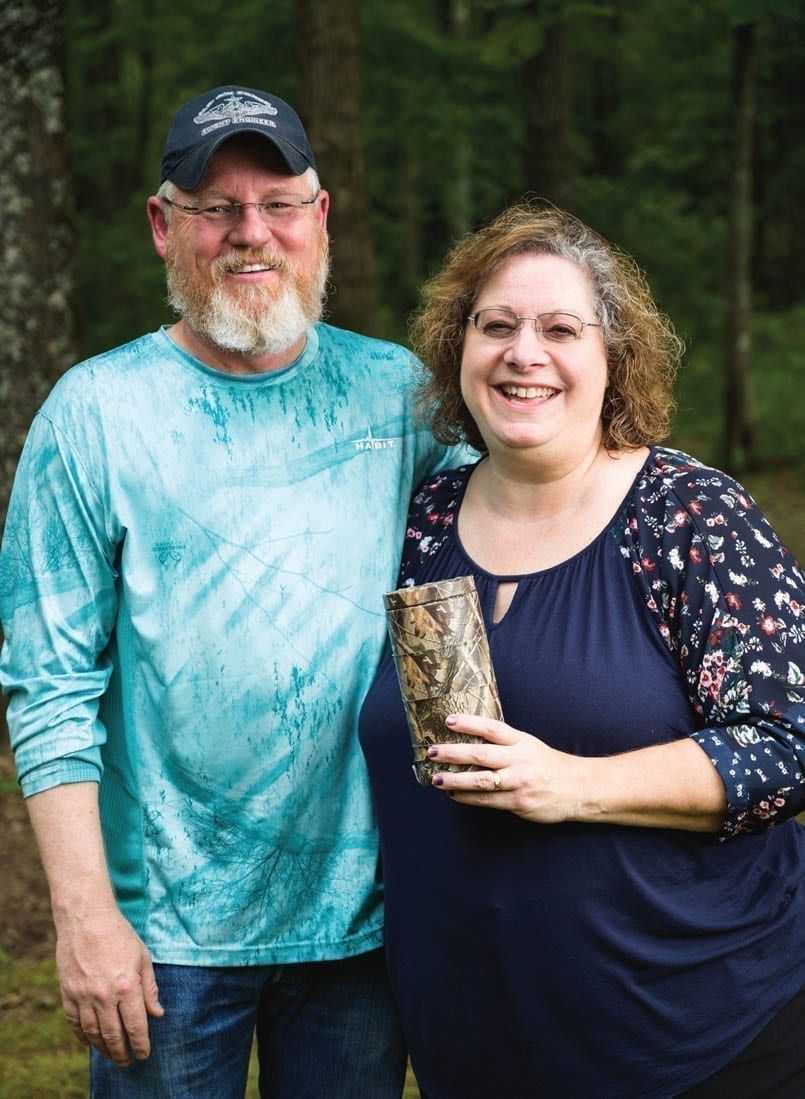20 Aug 2020 History and ghost towns draw adults to hobby
by Stefanie W. Brazile
If you liked going on scavenger hunts as a child, then geocaching may be the perfect outdoor activity for you. A Vilonia couple was introduced to the mind-bending game seven years ago by their daughter and have played all over the world. Lori and Kevin Taylor say the activity has taken them off the beaten path to discover fascinating history and two ghost towns.
“We like the thrill of finding caches and it gets us out of the house,” Lori said. “We’re novices who have found around 300. There’s always a thrill in the challenge!”
Kevin’s career brought the pair to the Little Rock Air Force Base nearly two decades ago. They love the natural beauty of the 501 and have used geocaching to learn more of the history of the region.
The game of clues launched 20 years ago and more than 3 million are hidden worldwide. The first cache was placed in Conway in 2006 and there are more than 150 covert missions within a 15-mile radius of the city. If your interest is piqued, visit Geocaching.com or download the app, create a login and identify where you are. Quickly, all the secret caches near you will show on a map. You can view their difficulty and click on a choice. It will open to reveal GPS (Global Positioning System) coordinates and clues.
Difficulty is determined by the terrain and size of the prize. Some caches are as small as your pinky nail, while others are about the size of a shoe box. What you discover inside is a paper log sheet that is signed by those who have been there before. Larger boxes may contain swag, or prizes, and whatever amount you remove should be replaced with an item of similar value. This makes it fun for kids and teens. Additionally, you go back into the app and mark whether you found the hidden booty or not.
“There are so many ways for people to disguise them,” Kevin said. “I’ve placed one where I actually used a snail’s shell. They are sometimes disguised as rocks, acorns, nuts or bolts so they blend with their surroundings.”
When you head out to explore, wear comfortable shoes and take: a pen, swag to replace prizes and a trash bag. The sport encourages a respect for the environment, plants and animals. Also, cache seekers can become cache hiders and will find complete instructions at the website.
Sometimes Kevin’s tenacity worries his bride of 34 years. “I watched him climb a cliff in Oregon to get one. He climbed a tree that was out over the cliff. It was smaller than an acorn.”

The couple said that participants in the 501 have creatively hidden several caches underwater at Greers Ferry and near Bridal Veil Falls in Heber Springs. They incorporate the hobby when vacationing and have discovered items near Mount Rushmore, in London, the Ukraine, the Cayman Islands, Cozumel, Mexico, and Montego Bay. In both Arkansas and Louisiana, they have discovered ghost towns.
One day of exploring led them to Rush (Marion County), which is an abandoned town that boomed in the 1880s because of zinc ore mining. “The cache was up a telephone pole; then we went through the trees and there was a town there,” Lori said. The ghost town in Holly Ridge, La., is what drew us off the highway while on our way to Vicksburg, (Miss.). I spotted it on the app and off we went.”
The inquisitive couple has learned a lot of military history in the Natural State because geocaching has taken them out of the land of the living. “Going through cemeteries creeps some people out, but there’s so much history to learn,” Lori said.
Kevin explained that some clues build upon one another. “They’ll send you to different graves and the final one is where you’ll find it. For example, one clue will be dates on a grave and when you put in those GPS coordinates, it may lead to a historical marker. Like at the national cemetery in Fort Smith, the clues sent you to all of the Medal of Honor recipients’ graves.
“We look for the ones that have a story and are intriguing. If the app says so many people couldn’t find it, that’s the ones we want,” Kevin said. “You’re supposed to log every one you search for and I’m still looking for a first find. Usually there’s a race from people all over the state to be the first to log it.”
So if COVID-19 has you longing for a reason to go outdoors, grab a picnic lunch and “cache-in” on a new hobby.











